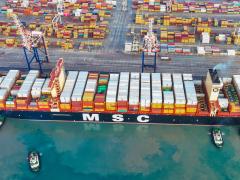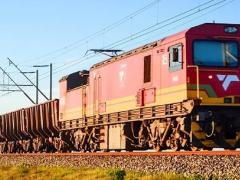The Department of Labour has issued a directive to expand its list of essential services to include critical port operations that will ban strikes by certain categories of Transnet employees working across the country’s ports.
According to the directive published in a recent government notice, marine services, including navigation, pilotage, towage and berthing, will be classified as essential services, Business Day reported on Friday.
Cargo handling of hazardous goods, such as explosives, flammable substances and pharmaceuticals, will also be classified as essential.
This measure supports broader logistics reforms under President Cyril Ramaphosa’s administration, which include private sector investment and participation in the country’s port operations.
Transport Minister Barbara Creecy issued a request for information in March to explore private investment in rail and port infrastructure, focusing on corridors like the Northern Cape to Saldanha bulk minerals route. Proposals are expected before the end of 2025.
Transnet has faced several significant strikes in recent years, impacting trade and the economy.
In 2021, unions rejected a 4% wage hike offer, leading to threats of strike action as wage talks stalled, though specific strike outcomes were not fully detailed.
A major strike occurred in October 2022, lasting 11 to 12 days, initiated by the United National Transport Union (Untu) and the South African Transport and Allied Workers Union (Satawu) over wage disputes.
Transnet was crippled by the strike and eventually declared force majeure as freight rail and port operations came to a grinding halt and exports dropped to 12-30% of normal capacity.
The Minerals Council of South Africa estimated daily losses of R815 million ($44m), totalling over R9.8 billion ($538m) for the strike period, which hit bulk minerals and agricultural goods exports hard.
Untu eventually signed a three-year wage deal agreeing to increases of up to 6%, ending the strike for most workers; however, Satawu continued its action briefly. The economy lost an estimated R65.3bn, and freight backlogs took months to clear.
The new regulations also designate essential services in Border Management Agency activities at 71 ports of entry, civilian defence services supporting the national defence force, and bulk services for power generation. The State Information Technology Agency’s data centre and wide area network services, as well as primary healthcare services at universities, are also included.
Public hearings on these changes are expected to take place next month (August).













